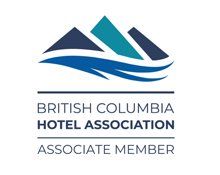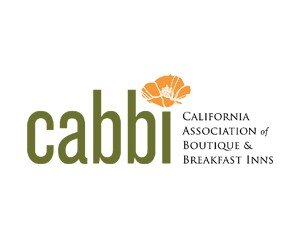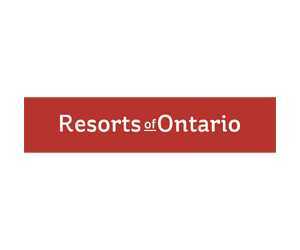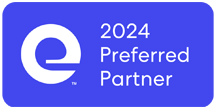COVID-19 changed our daily lives in the blink of an eye. We’ve had to act fast and drastically in our efforts to contain the virus and, in doing so, we’re reminded that agility and flexibility are key to navigating an unexpected turn of events.
The travel industry has been one of the hardest hit, and many lodging operators have had to make some tough decisions. These turbulent times not only call for quick, rational thinking and action, but also for tools that help us implement operational changes effectively.
For hoteliers, a flexible property management system (PMS) is critical to maintaining and improving efficiency and customer service as operational processes evolve during the COVID-19 crisis and beyond.
Check-in
One of the most important guest touchpoints to get right, the check-in process is changing in line with physical distancing precautions the whole world is taking. A “no-touch” approach requires hotels to offer guests the ability to check themselves in, reducing or eliminating physical interaction with the front desk.
In addition to a quick face-to-face check-in process, a flexible PMS should provide self-check-in functionality through either inbuilt applications or direct integration with third-party mobile check-in apps.
WebRezPro’s Guest Agreements feature for e-check-in allows guests to submit an online agreement that confirms their acceptance of the terms and conditions of a stay before arrival so that they may be checked in remotely. The completed guest agreement is automatically attached to the guest’s reservation and triggers a personalized message informing the guest how to access their room upon arrival.
Integration of mobile key technology and online payments eliminates the need to stop by the front desk at all as there’s no need for guests to pay in person or pick up a physical room key.
Inventory
COVID-19 travel bans and restrictions have decimated hotel occupancy around the world. Many properties have been forced to close temporarily or close a portion of their inventory to cut costs. Managing quick changes to availability across all channels is greatly simplified with a PMS that offers intuitive closeout functionality and also acts as a channel manager.
When temporarily closing a property or a portion of a property, existing bookings must be considered. Room closeouts should offer the flexibility to honor bookings already in place over the designated closeout period, and automatically close rooms attached to bookings that are cancelled for that time. The closeout period should be easily adjustable, and automatic stop sells applied to all distribution channels integrated with the PMS.
For hotels that continue to operate or are reopening, new operational guidelines recommend guestrooms to be vacant for at least 24 hours between stays to allow for stringent cleaning and decontamination. This is much easier to manage with automated room closeouts that can be set to automatically close any booked rooms the day prior to check-in and for 24 hours upon check-out, ensuring new guests cannot be checked in within that window.
Rates
These uncertain times for the hotel industry have certainly highlighted the importance of agile rate management tools. While drastically slashing rates is rarely a good idea, the ability to respond quickly to changes in demand is essential for maximizing revenue. Flexible rates (and cancellation policies) help to secure bookings when demand is low.
Your rate management tools should allow you to be nimble, with instant rate overrides and closeouts that can be applied to both pricing and restrictions (like length-of-stay and closed-to-arrival/departure restrictions), and the flexibility to discount reservations on a case-by-case basis to help clinch walk-in and phone bookings.
A PMS that supports deft and dynamic pricing strategies is key to optimizing profit, especially during uncertain times when the situation is changing rapidly.
Cancellations
Flexible cancellation and change policies have helped hotels preserve customer loyalty during this crisis and, going forward, give customers confidence to book during the recovery phase.
But at a time like this it’s also important for lodging operators to have additional ways of securing future business. Some PMS like WebRezPro allow cancelled bookings to be converted into gift certificates in place of issuing a refund in order to protect revenue.
As well, your PMS should track all cancellations by code so that in an event such as the current COVID-19 crisis lodging operators can identify resulting lost business for insurance purposes and to assist with managing cancellation and refund policies.
Communication
Communication is critical during a crisis, and a flexible PMS will provide various ways to keep guests informed.
In addition to automatically triggered confirmation and pre-arrival emails that can be customized as required, bulk email functionality is useful for contacting specific groups or segments of customers as needed, for example, guests arriving within a certain timeframe.
A hotel’s website booking engine can help clarify property status to customers too. Whether informing customers of limited services (for example, COVID-19 restaurant, gym and spa closures) for all availability searches, or updating the “no availability” message to explain that the property is temporarily closed, customizable messages can be easily managed through the PMS as long as the online booking engine is integrated with the PMS.
PMS integration with mobile messaging solutions and CRM platforms also helps streamline guest communications by using real-time reservation data from the PMS to fully automate and personalize messaging. A reputable PMS will offer integration with numerous leading industry solutions.
Quite unlike any other challenge the travel industry has seen before, the COVID-19 pandemic has pushed us into unfamiliar territory without a map. Flexible hotel management systems are crucial to maintaining and improving efficiency and customer service while navigating these uncharted times—and any other unexpected turn of events that may come our way in the future.

























